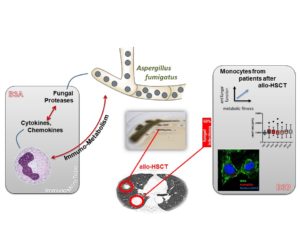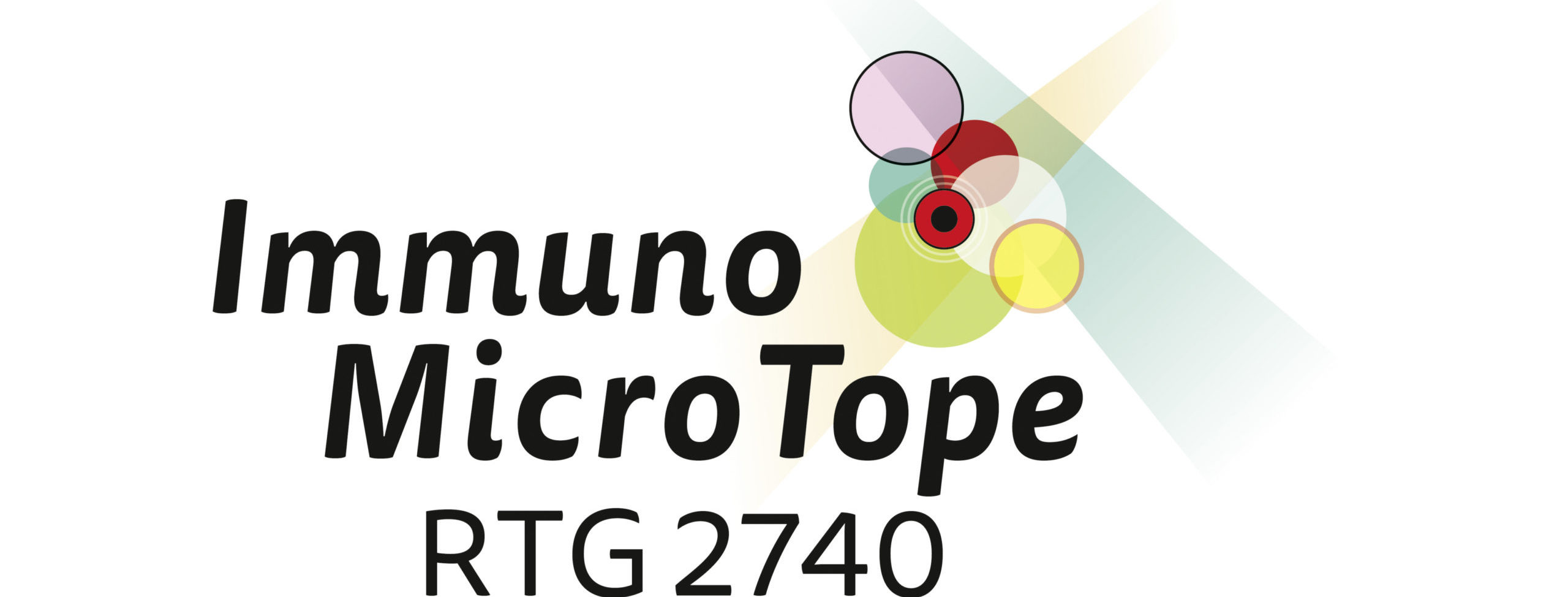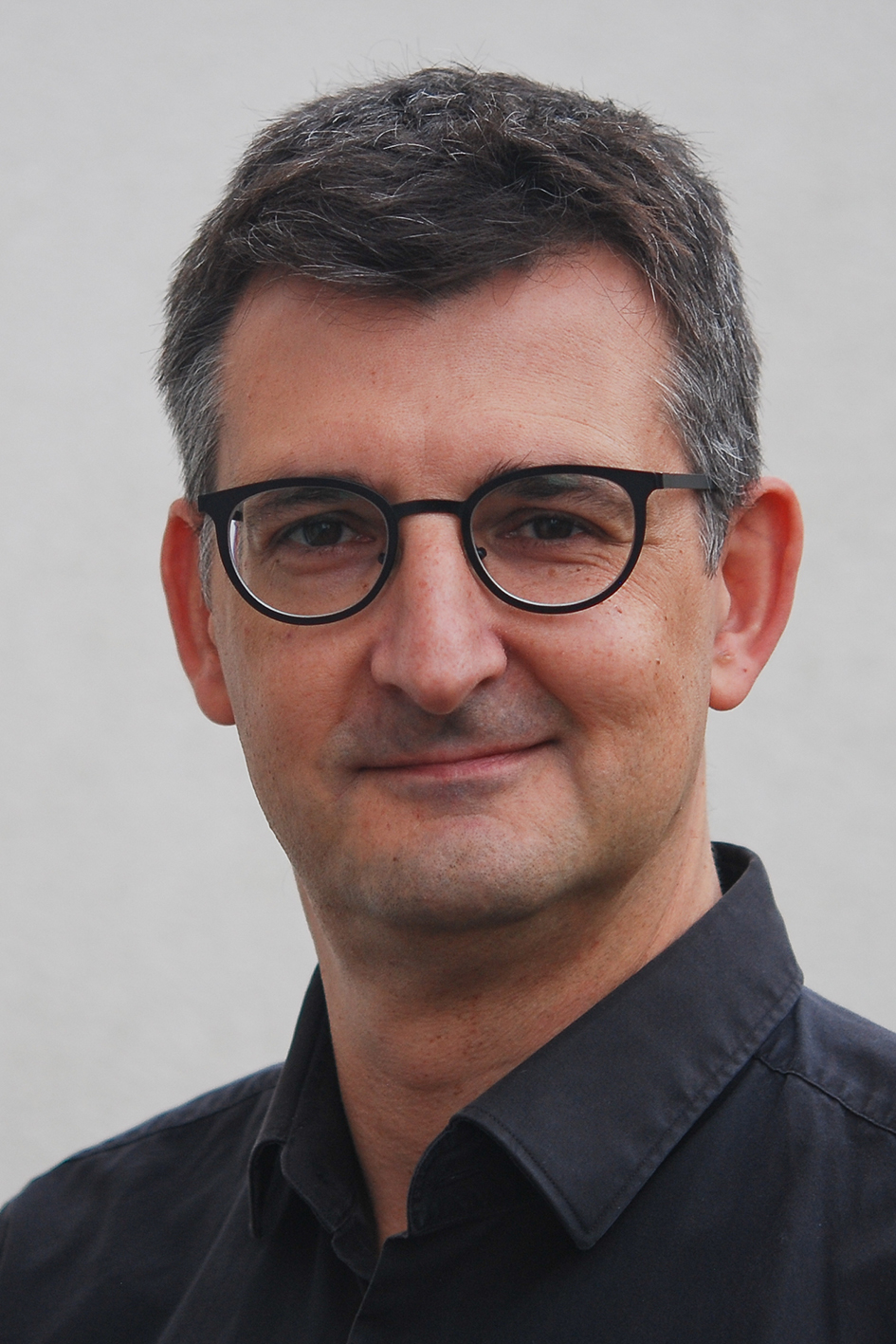B3: Immuno-metabolomics of invasive aspergillosis
B3: Immuno-Metabolism of Aspergillosis
Exploring pathogen and immune cell physiology in the context of fungal infection
Fungal infections pose a prevalent threat for susceptible individuals, especially immunocompromised patients. Among the WHO-declared group of critical fungal pathogens, the environmental mould Aspergillus fumigatus is of special interest within the RTG 2740 framework with an emphasis on its versatile physiology. As primary saprobe, this opportunistic pathogen feeds by osmotrophy and is able to metabolise a variety of carbon and nitrogen sources.
The tandem research project is based on the hypothesis that the nutritional status of A. fumigatus translates into aspects of pathogen recognition and elimination by host immune effector cells. Stress resistance and cell wall metabolism have been addressed in the first term of the RTG, and future research activities shall be focused on the glucose storage and energy reserve molecule glycogen and its role in fitness, virulence, cell wall composition, and immune cell recognition. By screening as well as generating appropriate mutant strains followed by extensive phenotyping under relevant experimental conditions, further insights about the interplay of primary metabolism and immunity in the context of fungal infection and especially aspergillosis shall be gained.
With respect to host response and immune effector mechanisms, we are particularly interested in macrophages and their phagocytosis of A. fumigatus. In the first term of the RTG we performed meta-transcriptome analyses and based on this, the functional relevance of the proteins that are expressed by A. fumigatus after uptake in the host cell shall be addressed in future studies. For this purpose, cellular assays with human macrophages and different mutant strains will be performed and the results will then be verified with samples from patients after stem cell transplantation.

Supervisor
Prof. Dr. rer. nat. Sven Krappmann
91054 Erlangen
PD Dr. rer. nat. Heiko Bruns
91052 Erlangen
- Phone number: +49 9131 85-43163
- Email: heiko.bruns@uk-erlangen.de
- Website: http://www.medizin5.uk-erlangen.de/


